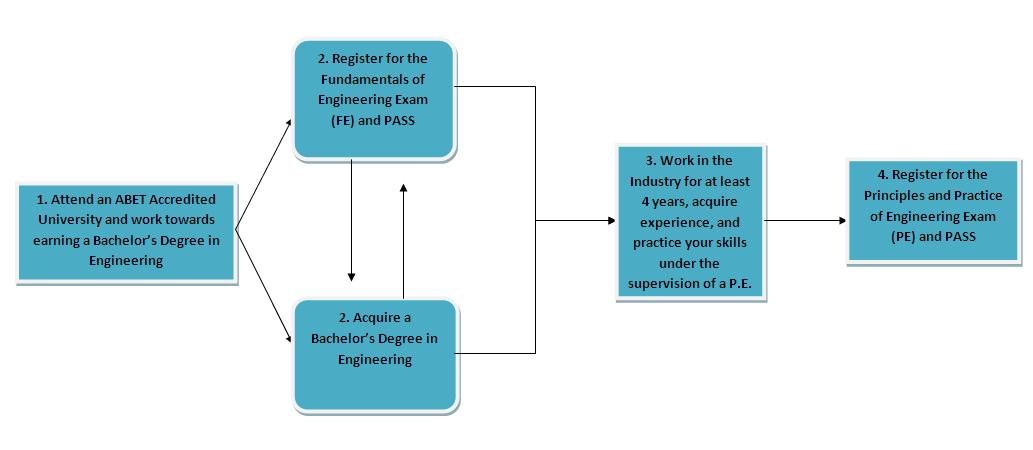Are you a student with a passion for engineering, specifically in the field of civil engineering? If so, pursuing a career as a civil engineer in the USA may be the perfect path for you. In this article, we will provide you with a step-by-step guide on how to achieve your dream career in civil engineering. Whether you are just starting your educational journey or considering a career change, these steps will help guide you towards success in the ever-growing field of civil engineering. So, let’s get started on this exciting career endeavor together.
Steps to Pursue a Career as a Civil Engineer in the USA
Are you interested in building and designing structures that shape the infrastructure of cities and towns? Do you have a passion for problem-solving and creating solutions that improve the lives of people? If so, pursuing a career as a civil engineer in the USA might just be the perfect fit for you. Civil engineers play a vital role in designing, constructing, and maintaining infrastructure projects such as roads, bridges, buildings, and water supply systems. In this comprehensive guide, we will walk you through the necessary steps to pursue a successful career in civil engineering.

This image is property of www.constructionplacements.com.
Academic Preparation
To lay a strong foundation for your career in civil engineering, it is crucial to pursue a Bachelor’s degree in Civil Engineering or a related field from an accredited institution. The coursework typically covers subjects such as calculus, physics, structural analysis, fluid mechanics, and transportation engineering. It is important to excel in these fundamental subjects, as they form the basis for more advanced topics you will encounter in later stages of your education and career.
During your academic journey, make the most of your time by actively participating in classroom discussions, joining relevant student organizations, and engaging in extracurricular activities related to civil engineering. These opportunities will not only enhance your knowledge but also help you develop essential skills such as teamwork, communication, and problem-solving.
Internships and Work Experience
While academic knowledge is essential, gaining practical experience through internships or co-op programs is equally important. Seek out opportunities to work with reputable engineering firms or government agencies to gain hands-on experience in the field. Internships provide a valuable opportunity to apply theoretical concepts in real-world scenarios, develop technical skills, and build a professional network.
Consider reaching out to your academic institution’s career services department for assistance in finding internships or co-op programs. They often have connections with employers looking for talented and enthusiastic interns in the field of civil engineering.

This image is property of images.ctfassets.net.
Certification and Licensure
To work as a professional civil engineer in the USA, it is essential to obtain the required certifications and licenses. After completing your Bachelor’s degree, you need to pass the Fundamentals of Engineering (FE) exam, administered by the National Council of Examiners for Engineering and Surveying (NCEES). This comprehensive exam tests your understanding of the fundamental principles of civil engineering.
Once you have successfully cleared the FE exam, you can then gain practical work experience under the supervision of a licensed professional engineer. The exact number of years required for work experience may vary from state to state. After fulfilling this requirement, you can apply to take the Principles and Practice of Engineering (PE) exam. Successfully passing the PE exam will earn you your professional engineering license.
Networking
Networking plays a crucial role in the field of civil engineering. Building professional relationships with peers, professors, industry professionals, and potential employers can open doors to new opportunities and accelerate your career growth. Attend professional conferences, join industry associations such as the American Society of Civil Engineers (ASCE), and actively participate in community events.
Additionally, consider connecting with professionals on online platforms such as LinkedIn. Engaging in discussions, sharing industry-related articles, and actively reaching out to professionals for advice or mentorship can help you expand your network and gain valuable insights into the field of civil engineering.

This image is property of s3e8p5g8.rocketcdn.me.
Continuing Education
The field of civil engineering is constantly evolving with new technologies, design methods, and construction practices. To stay up-to-date with the latest developments, it is essential to invest in continuing education throughout your career. Attend workshops, seminars, and webinars to enhance your knowledge and skills in specialized areas of civil engineering.
Continuing education not only adds value to your professional profile but also demonstrates your commitment to staying current with industry trends and best practices. Many professional organizations, including the ASCE, offer a variety of continuing education opportunities to help civil engineers expand their expertise.
Specialization
As you progress in your career, consider specializing in a specific area of civil engineering. Specialization allows you to become an expert in a particular subfield and opens up opportunities for advanced roles and projects. Some popular specializations within civil engineering include structural engineering, geotechnical engineering, environmental engineering, transportation engineering, and water resources engineering.
To specialize, you may need to pursue a Master’s degree or additional certifications in your chosen field. Research the various specializations available and determine the one that aligns with your interests and career goals.

This image is property of sphero.com.
Job Search
Once you have acquired the necessary education, certifications, and practical experience, it’s time to embark on your job search journey. Start by creating a well-crafted resume that highlights your academic achievements, work experience, and technical skills. Tailor your resume to each job application, highlighting relevant experiences and qualifications.
Utilize online job boards, professional networking platforms, and career fairs to explore job opportunities in the field. Research and reach out to engineering firms, government agencies, and construction companies that match your career interests. Networking connections established during your academic and professional journey can also prove valuable in finding job opportunities.
Resume and Cover Letter
Your resume and cover letter are essential tools for showcasing your skills and experiences to potential employers. Craft a professional resume that highlights your educational background, work experience, notable projects, technical skills, and any leadership roles or achievements. Keep your resume concise, well-organized, and error-free.
When writing a cover letter, tailor it to each job application and express your passion for civil engineering. Highlight specific experiences or projects that demonstrate your abilities and align with the requirements of the job.

This image is property of nysspe.org.
Interview Preparation
Preparing for interviews is crucial to making a positive impression on potential employers. Research the company or organization you are interviewing with, familiarize yourself with their projects and values, and be prepared to discuss how your skills and experiences align with their needs.
Practice common interview questions and develop concise and compelling responses that highlight your qualifications. Prepare a list of questions to ask the interviewer to demonstrate your interest and curiosity about the organization and the role you are pursuing.
Professional Development
A career in civil engineering is not just about landing a job; it involves continuous professional development to enhance your skills and expertise. Seek opportunities for growth within your organization by taking on challenging projects or pursuing leadership roles. Additionally, consider obtaining advanced certifications such as the Leadership in Energy and Environmental Design (LEED) accreditation to showcase your expertise in sustainable design.
Stay engaged with professional organizations, attend conferences, and participate in workshops to continue expanding your network and knowledge. Seek out mentoring opportunities to learn from experienced professionals in your field.
By following these comprehensive steps, you can pave the way for a successful and fulfilling career as a civil engineer in the USA. Remember to stay enthusiastic, proactive, and open to learning throughout your journey. The field of civil engineering offers immense opportunities to make a positive impact on society and shape the world we live in. Good luck on your path to becoming a civil engineer!